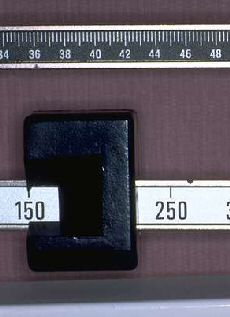 Overweight and obese men with prostate cancer were nearly twice as likely to die compared to prostate cancer sufferers who had a normal body mass index, say researchers in the journal CANCER.
Overweight and obese men with prostate cancer were nearly twice as likely to die compared to prostate cancer sufferers who had a normal body mass index, say researchers in the journal CANCER.
While obesity has been identified as a risk factor for more clinically aggressive prostate cancer, the impact of obesity on survival following treatment (radiation, surgery or hormonal therapy) is less understood. Now, Dr. Jason Efstathiou, from Massachusetts General Hospital, has established that a greater body mass index (BMI) at the time of cancer diagnosis is an independent risk factor for prostate cancer-related death.
The findings were based on 788 patients with locally advanced prostate cancer over an eight year period. The results showed that being overweight or obese at the time of diagnosis was a unique, independent risk factor for death from prostate cancer. Compared to men with normal BMI, men with a BMI between 25 and 30 were more than 1.5 times more likely to die from their cancer. Similarly, men with a BMI greater than 30 were 1.6 times more likely to die from the disease compared to men with normal range BMI.
"Further studies are warranted to evaluate the mechanisms for this increased cancer-specific mortality among overweight and obese men and to assess the impact of BMI on survival following other management strategies and in clinically localized disease. Whether weight loss after prostate cancer diagnosis alters disease course remains to be determined," concluded Dr. Efstathiou.
Related articles:
Weight Gain Can Turbocharge Prostate Cancer
Lifestyle, Diet And Your Prostate
Source: American Cancer Society

